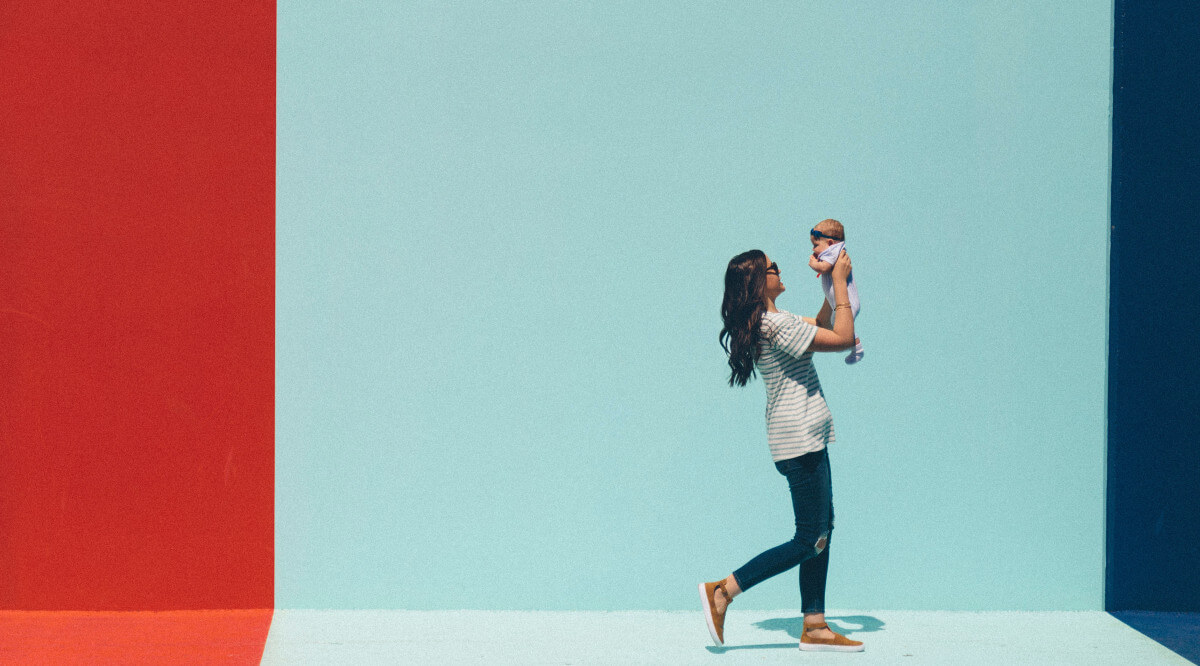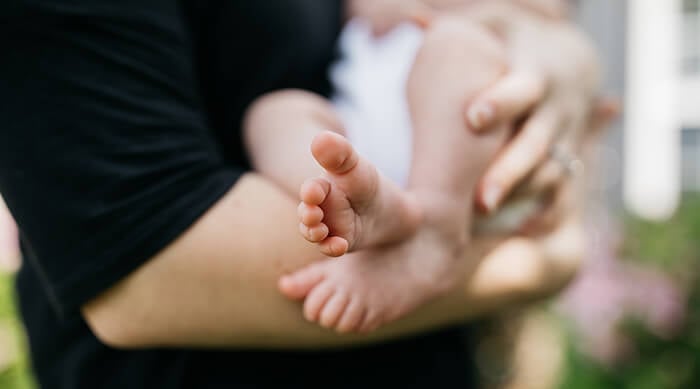After 9 months without a drink, some new moms are wondering: Is it ok to mix alcohol and breastfeeding? The simple answer is usually no. But there are actually “safe” ways to do it. When it comes to your baby’s health, every detail matters.
Get answers here, learn possible side effects, and discover delicious alternatives if you don’t want to take the risk.
Does alcohol pass to breast milk?
The short answer: Yes, alcohol can pass to breast milk if consumed prior to breastfeeding. While alcohol levels are highest within the 30-60 minutes after you have a drink, smaller amounts are still detectable up to 3 hours later. This is true regardless of body weight.
Here are some fast facts you need to know about how alcohol interacts with lactation:
- Pump and dump doesn’t work. The amount of alcohol in your breastmilk is determined by the blood alcohol levels (BAC) in your bloodstream. Alcohol needs to be metabolized out of a mother’s system before she can produce alcohol-free milk. Pumping milk then throwing it out does not “get rid of the alcohol-containing milk.”
- Timing is everything. The CDC recommends waiting 2 hours after having an alcoholic beverage before breastfeeding or pumping. Others recommend 3 hours just to be safe.
- More drinks = more time waiting. One drink can linger in a mother’s system for roughly 2-3 hours, but 2 drinks will still be detectable in the mother’s milk for 4-5 hours. 3 drinks would require waiting 6-8 hours to feed your child safely.
- Babies metabolize alcohol differently. Through breastmilk, a baby gets a fraction of the alcohol the mother has consumed. Research shows that the infant will consume 5-6% of the adjusted maternal dose, which is based on maternal weight. While that doesn’t sound like a lot, it’s important to remember that infants metabolize alcohol from milk intake at half the speed of an adult, meaning that the drink stays in their system for longer.
- Drinking in moderation, defined. The CDC defines “moderate drinking” as up to one standard drink a day. Any more than this can be unsafe for your child, especially if you’re drinking more regularly. This seemingly low number means binge drinking is out of the question.
How much alcohol is safe for a breastfeeding baby? The CDC has determined that the safest course is to avoid drinking while breastfeeding, but there’s no known harm at this time if the alcohol is limited to one drink, ingested more than 2 hours before breastfeeding.
Evidence That Alcohol and Breastfeeding Don’t Mix
While there’s not a significant likelihood that your baby will be harmed by moderate alcohol consumption, there’s no guarantee that it will not affect them.
Here are the notable downsides to combining alcohol and breastfeeding:
- Alcohol seems to reduce the amount of expressed milk by almost 10% over the first 2 hours after drinking. While the research is somewhat slim, it seems that you can risk your milk production through drinking while breastfeeding.
- Your breastfed baby’s sleep patterns may also be affected if they consume above moderate amounts of alcohol through your milk supply. Sleep dysfunction can tamper with their growth and motor development — not to mention your plans during naptime!
- One study found that alcohol consumption may decrease lactating mothers’ oxytocin levels while increasing cortisol and prolactin. For new moms whose hormones are still normalizing after birth, this may be harmful.
- The CDC warns that alcohol consumption above moderate levels (more than one drink) can also affect a mother’s ability to properly care for her child.
- Alcohol consumption greater than one drink may also negatively interfere with the letdown, or milk ejection reflex.
If you’re worried about the amount you may consume, are concerned at the idea of producing less milk, or feel uneasy about alcohol use while breastfeeding, it’s reasonable to continue your elimination of alcohol after your pregnancy now that you’re breastfeeding.
What are the risks of drinking alcohol while breastfeeding? The risks of drinking alcohol while breastfeeding include passing alcohol through breastmilk that impairs the baby’s sleep schedule, motor skill development, and growth. Other risks include difficulty caring for the baby while under the influence and decreased breast milk supply.
Evidence That Drinking While Breastfeeding Might Be Okay
Can’t bear the idea of giving up an occasional drink? Here’s the (flimsy) evidence that drinking may be alright for breastfeeding moms.
- Alcohol is not detectable in breast milk approximately 3 hours after 1 alcoholic drink. If practiced occasionally, the odds are very low that your baby will ingest any alcohol.
- Some sources say that drinking only one drink and ensuring you are not drinking on consecutive days can increase the odds of safe alcohol use while lactating.
An important note: A widely held misconception is that drinking while breastfeeding will increase your breastmilk supply. Research has found the opposite to be true.
A recent study of Australian mothers found that 60% of them had returned to drinking alcohol at 8 weeks postpartum. This number highlights the need for better information about the risks of alcohol and breastfeeding.
When can I breastfeed after drinking alcohol? The CDC says that it is safe to breastfeed 2-3 hours after drinking one drink. If you have imbibed more than a moderate amount (1 standard drink), the time you’ll need to wait will multiply with each drink.
What Different Agencies Say About Alcohol and Breastfeeding
To sum up this section, most authorities on the subject recommend waiting at least 2 hours after any alcohol intake before nursing babies. Others note that many unknown variables surround how alcohol affects human milk over time.
- The Centers for Disease Control and Prevention (CDC) states that it’s safest for breastfeeding mothers not to drink at all.
- The World Health Organization (WHO) suggests mothers avoid alcohol while breastfeeding.
- The Academy of Breastfeeding Medicine notes that there are still many unknowns around long-term effects of alcohol on breastfeeding.
- The American Academy of Pediatrics (AAP) recommends no more than 2 cans of beer or an 8 oz glass of wine on occasion. They recommend waiting at least 2 hours to eliminate any level of alcohol in the blood.
- The American College of Obstetricians and Gynecologists (ACOG) directs parents to wait no less than 2 hours after a single drink before breastfeeding.
Best Alternatives To Drinking Alcohol
There’s good news for moms who want to abstain from alcohol intake: You don’t have to give up great flavor to give up alcohol while breastfeeding. Whether you choose to go teetotal to fight weight gain from the pregnancy or ensure your baby stays absolutely safe, you have options.
Here are some of our favorite non-alcoholic options:
- Surely. If you’re a wine-lover, try non-alcoholic wine crafted in the heart of California with master winemakers. You can get the same luscious taste with our range of rosé and white wines, with the option of sparkling or still.
- Smoothies. Packed with nutrition, a great smoothie can be a tasty way to unwind and provide the nutrients you need to
- Teas and flavored waters. Infusing a pitcher of water with delicious fruits or finding your new favorite herbal tea can give you a satisfying treat without the concerns that can accompany alcohol.
- Mocktails. Easy to make at home or for a party, a mocktail recipe is an excellent replacement for alcohol, easy to elicit thoughts of your favorite drink.
One alternative to avoid: Caffeine can transfer through breast milk, so steer clear of coffees and caffeinated teas.
You should discuss any decisions you make around alcohol and breastfeeding with your healthcare provider.
If you go sober for a short time, you’ll quickly notice the benefits of not drinking. Who knows? With these satisfying alternatives, you may never go back!




![9 Creative Baby Shower Mocktails [For Wine Lovers & More]](https://dropinblog.net/34240221/files/featured/baby_shower_Mocktails.jpg)

